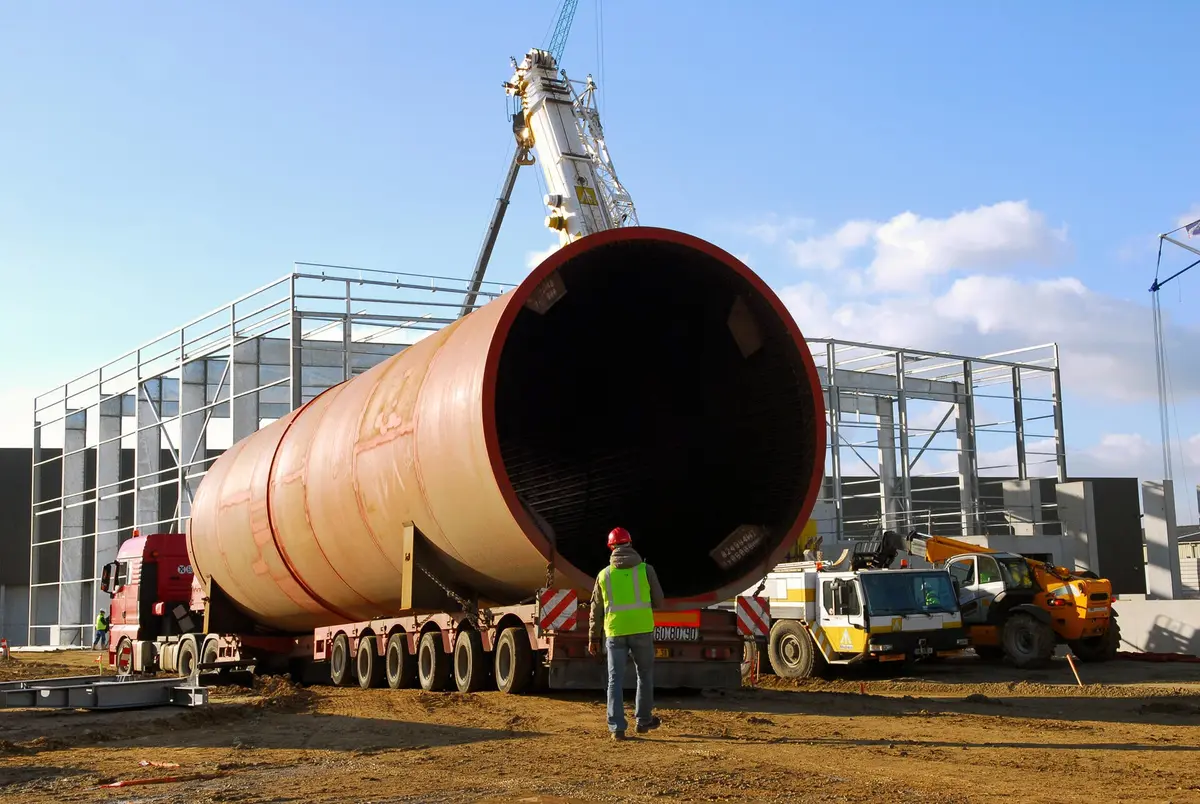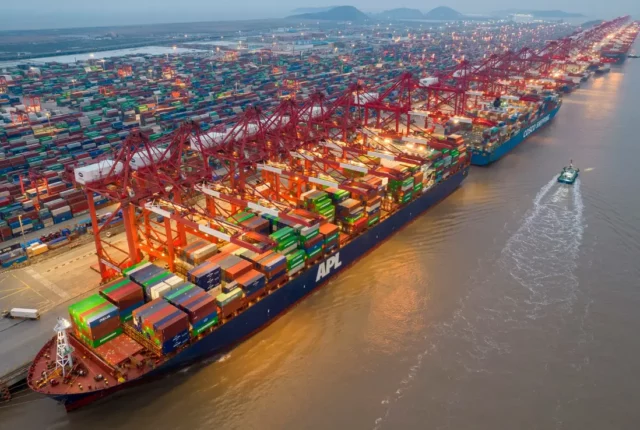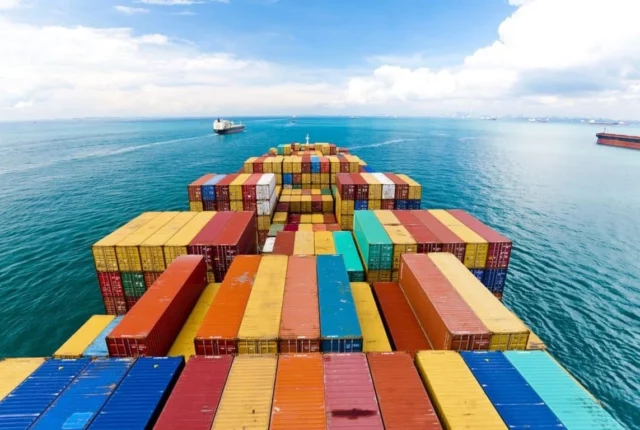
Building Success: Project Logistics Strategies for Construction Projects
In the dynamic realm of construction projects, the significance of project logistics cannot be overstated. Imagine a construction site without a well-organized system for transporting materials, managing inventory, and coordinating various activities—it would be chaotic. The success of a construction project heavily relies on the efficiency of its logistics strategies.
Understanding Project Logistics
Defining Project Logistics
Project logistics, in the context of construction, encompasses the planning, coordination, and execution of the flow of materials, equipment, and information from the point of origin to the construction site. It involves a series of interconnected processes that ensure the right resources are in the right place at the right time.
Components of Project Logistics in Construction
Project logistics includes the transportation of raw materials, equipment procurement, inventory management, and the timely delivery of materials to the construction site. It’s a multifaceted system that demands meticulous planning and execution to prevent delays and cost overruns.
Challenges in Construction Project Logistics
Navigating the complex landscape of construction project logistics comes with its set of challenges. From addressing transportation complexities to managing inventory efficiently, and dealing with unpredictable factors such as weather conditions, these challenges require innovative solutions.
Addressing Complexities in Transportation
Transporting materials to and from the construction site involves navigating through urban areas, adhering to strict timelines, and optimizing routes to avoid delays. Overcoming these transportation challenges is crucial for maintaining project timelines.
Managing Inventory Efficiently
Efficient inventory management is pivotal in preventing shortages or surpluses of materials. A streamlined inventory system ensures that the necessary resources are available when needed, avoiding project delays.
Dealing with Unpredictable Factors
Weather conditions, supplier delays, and unforeseen obstacles can disrupt even the most well-laid plans. Construction project logistics must account for these unpredictable factors, implementing contingency plans to minimize their impact.
Key Elements of Successful Project Logistics Strategies
The success of project logistics in construction hinges on several key elements. Let’s explore these elements in detail:
Detailed Planning and Scheduling
Thorough planning and scheduling are foundational to successful project logistics. A comprehensive plan should outline every step of the logistics process, from material procurement to on-site delivery.
Effective Communication and Coordination
Clear communication and coordination among all stakeholders are essential. From suppliers to transporters and on-site personnel, a seamless flow of information ensures everyone is on the same page, reducing the likelihood of misunderstandings.
Utilization of Advanced Technology
Incorporating advanced technology, such as GPS tracking, RFID systems, and project management software, enhances the precision and efficiency of logistics operations. Technology streamlines processes and provides real-time insights.
Collaboration with Reliable Partners
Building strong partnerships with reliable suppliers, transporters, and other logistics partners is fundamental. Trustworthy collaborations contribute to a smoother flow of materials and resources throughout the project.
Environmental Considerations in Project Logistics
In the era of sustainability, construction projects are increasingly embracing eco-friendly practices in logistics:
Sustainable Practices in Construction Logistics
Implementing sustainable transportation methods, recycling materials, and minimizing carbon emissions are becoming integral parts of construction project logistics.
Reducing the Carbon Footprint in Transportation
From electric vehicles to green packaging, efforts to reduce the carbon footprint in transportation contribute to environmentally responsible construction practices.
Cost Optimization in Project Logistics
Balancing cost efficiency with quality is a delicate yet crucial aspect of project logistics:
Strategies for Minimizing Costs
Bulk purchasing, efficient route planning, and lean inventory management are strategies that help cut down costs without compromising on project quality.
Balancing Cost Efficiency and Quality
While cost optimization is essential, maintaining the quality of materials and services is equally important. Striking the right balance ensures project success without sacrificing standards.
Risk Management in Project Logistics
Anticipating and mitigating risks is a fundamental aspect of effective project logistics:
Identifying Potential Risks
Thorough risk assessments identify potential challenges, allowing for proactive measures to address or circumvent issues before they escalate.
Developing Contingency Plans
Having contingency plans in place ensures that, in the face of unexpected challenges, the project can adapt and continue progressing without significant setbacks.
Training and Skill Development for Logistics Personnel
The human factor plays a crucial role in project logistics:
Importance of Skilled Personnel in Project Logistics
Well-trained personnel contribute to the smooth execution of logistics plans. Their expertise in handling challenges enhances the overall efficiency of the construction project.
Training Programs for Enhancing Skills
Investing in ongoing training programs ensures that logistics personnel stay abreast of industry advancements, refining their skills to meet evolving challenges.
Conclusion
In conclusion, effective project logistics are indispensable for the success of construction projects. From navigating transportation complexities to embracing technological advancements and considering environmental sustainability, a holistic approach to logistics ensures seamless project execution. By addressing challenges, incorporating innovations, and emphasizing the human element, construction projects can build success through robust project logistics strategies.
FAQs
Q: How can project logistics impact the overall timeline of a construction project?
A: Efficient project logistics can significantly reduce delays by ensuring timely delivery of materials and optimizing transportation routes.
Q: What role does technology play in modern construction project logistics?
A: Technology, including AI and advanced tracking systems, enhances the precision and efficiency of logistics operations.
Q: How can construction projects minimize their environmental impact through logistics?
A: Sustainable practices such as eco-friendly transportation and recycling materials contribute to reducing the environmental footprint of construction logistics.
Q: What are the key challenges in training logistics personnel for construction projects?
A: Challenges may include keeping up with technological advancements and ensuring a deep understanding of the unique requirements of construction logistics.
Q: How do contingency plans in project logistics mitigate risks?
A: Contingency plans provide a proactive approach, allowing for quick adjustments in the face of unforeseen challenges, minimizing their impact on the project.






